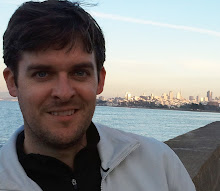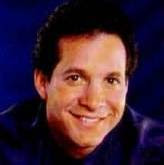From the perspective of cinematic equipment, namely a tripod (notice its skewed point of view reflected in the film’s poster), as well as its appearance as a three-legged war machine in the sci-fi classic (and Spielberg’s 2005 re-boot), WAR OF THE WORLDS [#9], Abrams’ film-within-a-film likewise falls flat in an uncompelling fashion under the strain of such weighty adulation for his Amblin mentor and fellow producer - - much like the young filmmakers’ tripod collapses during the visually remarkable train crash and pivotal centerpiece in SUPER 8. In order to understand the crucial significance behind this cataclysmic sequence and why it was filmed over one year in advance of the film’s release date requires going back quite a few years.
Spielberg has said that his earliest childhood memory which impassioned him with his love of filmmaking was Cecil B. DeMille’s THE GREATEST SHOW ON EARTH that features a disastrous train wreck [see #6] created in the heyday of Hollywood crews’ skillful production of models, pyrotechnics and special-effects movie magic. Of the six children in SUPER 8 to first witness the catastrophic head-on collision of the pick-up truck derailing the multi-car Air Force train which unleashes an alien creature, it can be surmised that Joe Lamb (Joel Courtney) is the biographical construct of Mr. Spielberg, who, as a hobby in the film, creates and paints model train cars (later used during the staged train crash over the film’s closing credits) much like Steven did during his youth: Exhibit A | Exhibit B | Exhibit C
Watch the train crash in SUPER 8. At the very moment the pick-up truck’s two pairs of wheels merge with the track within striking distance of the trajectory of the train (just as Klaus [Lyle Bettger]’s vehicle did in DeMille’s film), the doomed lovers in Charles’ (Riley Griffiths) 8mm zombie film, “The Case”, utter the lines, “I love you so much’ and ‘I love you, too” moments before a shower of explosive, animated steel and debris surround the filmmakers as if they’re evading enemy gunfire in Spielberg’s SAVING PRIVATE RYAN [#10]. It’s curious that The Cars’ “Bye Bye Love” is playing in the soundtrack en route to the location-shoot at the train station - - could this perchance be Spielberg intimating ‘goodbye’ to the special effects filmmaking techniques of yesteryear, at once, so dear to his heart, as we enter the fully-digital arena of the 21st century or is it simply an attempt at foreshadowing through the characters’ dialogue their fateful goodbyes? My money is on the former.
SUPER 8 has quite a bit to say about the act of looking. Like an adept filmmaker who is able to anticipate a problem on set, notice how Joe (initially tasked with being a grip and makeup artist) looks over his shoulder and is the first to be aware of the potential destruction about to befall his young friends. There is even a hollowed reverb element in the sound design to accentuate his close-up gaze of the oncoming disaster in the vein of the visually unsettling dolly zoom (or “Hitchcock zoom”) in VERTIGO or Spielberg’s use of the effect in JAWS. However, “The Case” is not Joe’s film. The film’s enthusiastic director, Charles, like J.J. Abrams, is strictly in it for the “production value” and focuses his tunnel vision on documenting his shot unable to foresee the damage about to come his way. Likely crowding his vision is Abrams’ penchant for lens flare which would’ve gotten a filmmaker fired in the good ole’ days of the Hollywood studio system.
It might be more significant that Joe is the sacrificial ‘lamb’ as the film’s youthful protagonist. The other characters and elements that permeate SUPER 8 seem to attract to him much like the emptied train cargo of mysterious, magnetized cubes which pull towards each other for reasons yet unknown. Just as Elliott (Henry Thomas) was initially ignored by those in his orbit [see #4], by the climax of E.T., after he forms a connection with an alien botanist, he becomes the central focus of attention towards which his peers gravitate. Similarly, Elliott’s family unit is broken by the exit of a parent (his father, a consistent theme in Spielberg’s work). In Abrams’ film, the Lamb family experiences the tragic loss of its wife and mother from an accident at the town’s steel mill. If it weren’t for the alien being escaping its steel prison cell of the train car and wreaking havoc on the fictional town of Lillian, OH, the death of Elizabeth Lamb (Caitriona Balfe) was already responsible for sending shockwaves through the tight-knit, mid-western town.
Strangely, the action that unfolds seems awfully familiar and starts to resemble a cinematic town full of filmic neighborhoods we’ve visited before. When the kids aren’t borrowing their parents’ automobiles, they get around with the assistance of their trusty bicycles [see #2, #3, #4, #5]. The military occupies the town of Lillian (named after Abrams’ grandmother) [see #1, #2, #4, #7] in an effort to cover up a government project which involved keeping an alien being captive as people are inextricably snatched [see #1, #2, #3, #8] by a nearly-unseen, tentacled beast who is pilfering various appliances [see #4] to construct its spaceship (aided by those cryptic, shape-shifting cubes). Unmanned automobiles in a used car lot {perhaps a nod to USED CARS [#11]?} spin out of control [see #3], levitate and magnetize to the spacecraft for additional ballast before the creature uses it to depart its water tower launch pad towards an extra-terrestrial destination at the fascination of the film’s surviving onlookers [see #1, #2, #3, #4, #5 ………. ].
Ordinary kids pitted in Extraordinary situations … Joe (SUPER 8) and Barry (CLOSE ENCOUNTERS OF THE THIRD KIND) share striking, ‘70’s similarities.
Steven Spielberg is one of the most recognized, respected and strategic film directors in the world with entertainment properties valued in the billions of dollars. He has either mentored or (executive/co-) produced films by such directors as Frank Marshall, Robert Zemeckis, Joe Dante, Matthew Robbins, Kevin Reynolds, Todd Holland, Phil Joanou, Brad Bird, Barry Sonnenfeld, Michael Bay (who, coincidentally, was also known at the age of 13 to have a fondness for blowing up his train set and filming it with his 8mm camera), Peter Jackson, D.J. Caruso, Jon Favreau and others. In some of these relationships, Spielberg has humbly foregone the screen credit either for financial/political reasons or more assuredly, because he was passionate about the project and wanted to solely be its cinematic benefactor. To have such a prolific cinephile with a deft hand in his/her ring would surely be any filmmaker’s delight. Even upon Stanley Kubrick’s passing and after many private conversations on the craft of filmmaking and collaborations on the film which Kubrick stated was more suitable to Spielberg as it was “closer to his sensibilities”, Spielberg directed the ambitious A.I. ARTIFICIAL INTELLIGENCE.
J.J. Abrams and his many ‘easter eggs’ (here, Romero's DAWN OF THE DEAD) … Not seen on the wall is Charles’ other poster for John Carpenter’s HALLOWEEN which takes place primarily in Haddonfield, IL. Haddonfield, NJ is the home town of the film’s producer/screenwriter Debra Hill - - as well as Steven Spielberg's home when he was a child.
Many of the aforementioned filmmakers have succeeded/are succeeding in their own right because of their individual creative, stylistic voices and the emotions they evoke in their respective audiences. Unfortunately, the young filmmakers’ inside references to George Romero in their construction of a low-to-no budget zombie horror picture in SUPER 8 are overshadowed by Abrams’ direction of his film in which “The Case” exists: a 112-minute master class on the essential cinema of Steven Spielberg.







